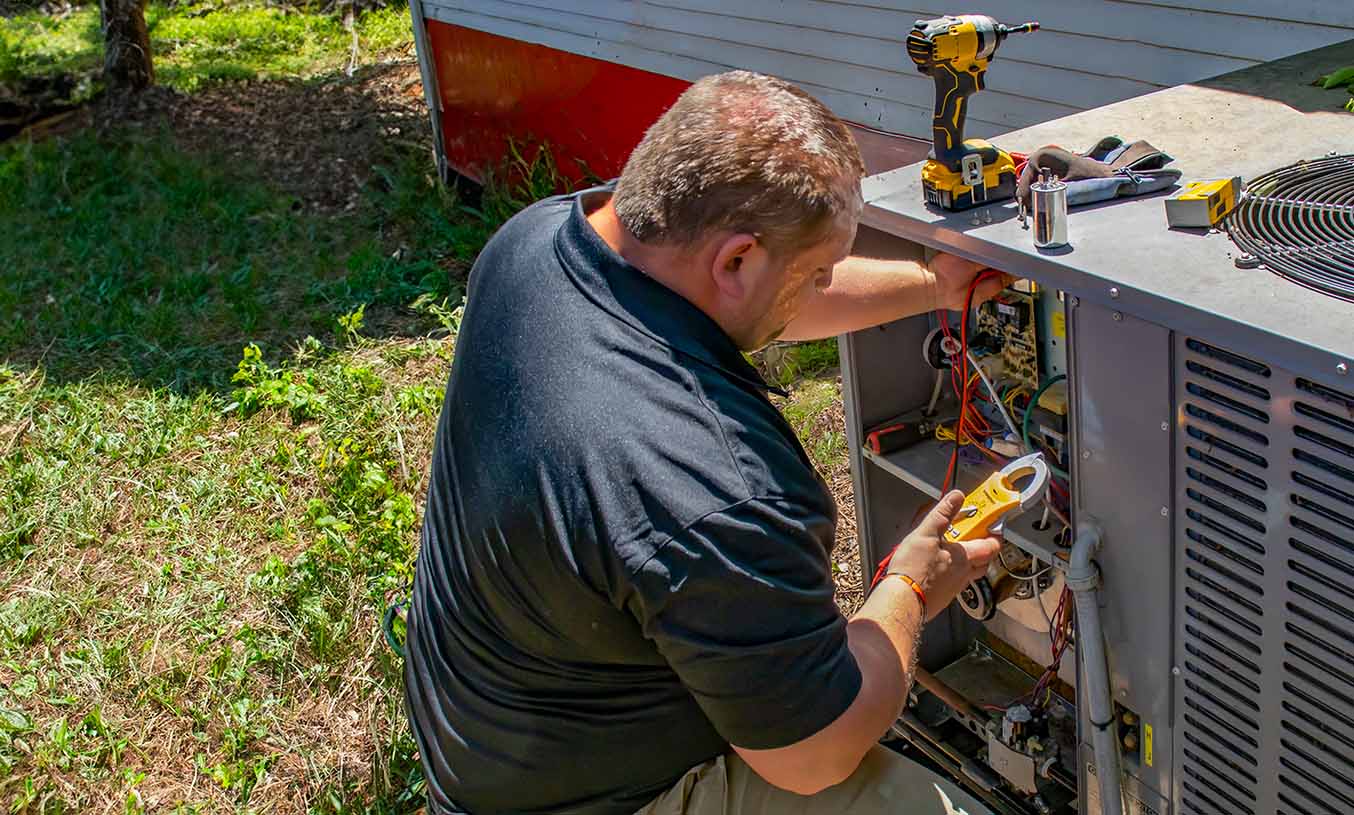- HEP
- Energy Efficiency

 Energy Efficiency
Energy Efficiency
Energy Efficiency | Air Conditioning | Heating and Air Conditioning | Helenwood
Summer in Helenwood can be downright sweltering, but HEP keeps comfort simple with smart, money-saving air conditioning solutions tailored to the way you live. Our certified technicians design and install high-SEER systems that cool faster, run quieter, and sip less electricity—so you feel crisp relief without the spike on your power bill. From initial load calculations to seamless thermostat integration, every step is engineered for peak efficiency and year-round dependability.
Beyond installation, HEP protects your investment with proactive maintenance plans, priority service, and honest, small-town customer care. Whether you’re upgrading an aging unit or fine-tuning a brand-new system, we’ll help you lower energy costs, shrink your carbon footprint, and enjoy steady comfort through every Tennessee season. Discover how effortless efficient cooling can be—reach out today and breathe easier tomorrow.
FAQs
How can upgrading my air conditioner improve energy efficiency in Helenwood’s climate?
Helenwood’s humid summers force older, lower-efficiency units to run longer to remove both heat and moisture. Replacing a system that is 10–15 years old with a modern, high-SEER or SEER2 unit can cut cooling electricity use by 20-40 %. New systems use variable-speed compressors and electronically commutated motors that automatically adjust output to match the exact cooling load, so you stay comfortable while the equipment draws only the power it needs.
What SEER or SEER2 rating should I look for when buying a new air conditioner?
In Tennessee’s climate zone, the federal minimum efficiency for split-system air conditioners manufactured after 2023 is 14.3 SEER2 (roughly 15 SEER). For best long-term savings, many homeowners choose models rated 16–18 SEER2; the additional upfront cost is usually recovered through lower utility bills within 4–6 summers. If you intend to keep the home for 10+ years or want top efficiency, consider 20 SEER2 or higher variable-capacity systems.
How often should I change or clean my AC filter to keep the system running efficiently?
Check the filter monthly during peak cooling season and replace or wash it at least every 60 days. Homes with pets, smokers, or allergy sufferers may need to change filters every 30 days. A clogged filter restricts airflow, causing the blower motor to work harder and the coil to freeze, which can increase energy use by up to 15 % and shorten equipment life.
Is installing a programmable or smart thermostat really worth it?
Yes. Programmable thermostats let you automatically raise the set point 5–8 °F when the house is empty and cool it down before you return, trimming seasonal cooling costs by 10 %. Wi-Fi smart models go a step further, using geofencing and adaptive algorithms to learn your schedule and adjust settings in real time. Many utilities, including TVA’s EnergyRight program, offer rebates or bill credits for qualifying smart thermostats.
Are there any local incentives or rebates for energy-efficient AC upgrades in Helenwood?
Residents served by the Tennessee Valley Authority (TVA) and local power companies can apply for EnergyRight® rebates on qualifying high-efficiency heat pumps and central air conditioners. Incentives typically range from $150 to $500, depending on SEER2 rating and whether you complete a Home Energy Evaluation. Federal tax credits are also available through 2032—up to 30 % of the installed cost, capped at $600 for air conditioners or $2,000 for heat pumps.
How does regular maintenance affect my cooling costs and system longevity?
A professional tune-up each spring can restore up to 10 % of an AC’s lost efficiency. Technicians clean the condenser coil, check refrigerant charge, tighten electrical connections, and lubricate motors. These steps reduce compressor amp draw, lower operating temperatures, and prevent premature component failure. Well-maintained systems in Helenwood typically last 12–15 years, while neglected units may fail in as little as 8–10 years.